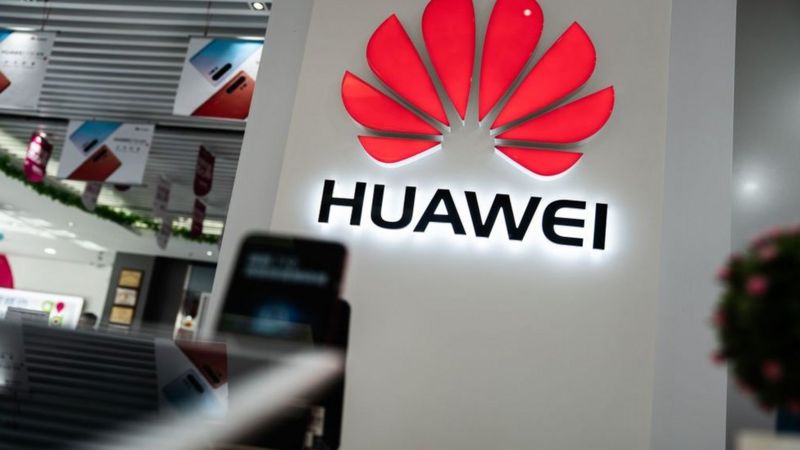WEB IProcess Pyme LITE!
Ideal for small companies that need productive modules, 10 corporate emails, 5 sections, 20 product catalog, 5 SEO campaigns, e-commerce.

 Español
Español
 English
English

Do you have a Huawei cell phone in your hand? Take care of it a lot. In the next few years it could be a rare object outside of China.
The cell phone maker, once the world`s second-biggest smartphone-selling company, will be forced to cut production dramatically in 2021, a decline that the Financial Times puts at around 60%.
If at the end of 2019, Huawei ranked third behind Samsung and Apple, a year later the company fell to fifth place, while Apple has taken first place, according to data from the analysis firm Gartner.
The Chinese giant suffered a sharp drop in smartphone sales of 41% in the last quarter of last year due to sanctions imposed by the US government in the framework of the trade war with China and other global factors of equal relevance.
The Chinese brand`s phones were forced to withdraw both Google`s apps and operating system due to trade restrictions imposed by the United States in 2019.
And in a market of fierce competition and with customers accustomed to Android - Google`s operating system. the results begin to reflect the lack of access to popular applications such as Google Maps, YouTube or Play Store.
The US government`s ban also cut off access to key US-sourced technology, affecting its ability to design its own chips and source components from outside vendors.
Also the loss of access to key components of US manufacturers for the manufacture of phones, such as AMD, Intel, MediaTek, Micron Technology, Microsoft, Qualcomm, Samsung, SK Hynix or Sony, are taking a toll on Huawei`s smartphone division.
"Any company anywhere in the world that designs or manufactures chips for Huawei and that is using US equipment or software to do so needs to obtain a license from the US government," explains Fabrice Jacob, CEO of JK Capital Management.
This measure by the United States forced the Chinese giant to reorganize its supply chain and in practice meant changing the manufacturing plans of many models on the fly, despite the fact that some of these suppliers did obtain permission from the State Department.
Thanks to its stored components, Huawei managed to be the largest mobile phone manufacturer in the world in the second quarter of 2020, but since then the firm has been losing ground.
"All chip manufacturers, including the largest in the industry, TSMC -taiwanese origin-, use American equipment, and some of these, such as those manufactured by Applied Material, Lam Research or KLA-Tencor, have no foreign competition", Jacob adds.
In this environment, Huawei decided in November 2020 to sell its cheapest cell phone brand -Honor- to a consortium of more than 30 Chinese companies in an attempt to help the firm regain access to critical components and parts subject to restrictions. from USA
According to the Japanese newspaper Nikkei, Honor would have managed to reestablish business relationships with key suppliers.
But the JK Capital analyst believes that the ban also affects another Huawei division, which is responsible for telecommunications equipment, which competes with Nokia, Ericsson and Samsung Electronics, to make network equipment using 4G and 5G.
"These 5G teams need other chips that are only made in the United States," he says.
Xiadong Bao, a fund manager at Edmond de Rothschild AM, adds that the US veto is likely also affecting its telecommunications equipment business.
"They will have a higher cost and lower performance and energy efficiency than the competition. The rest of the hardware businesses, such as the PC, the router and the laptop, will also see a less competitive product offering due to the lack of components. next-generation key, "he says.
"The commercial viability of having a smartphone business no longer exists," he says, referring to the cell phone division.
On the positive side, he believes, this forces Huawei to transform its business model into other areas such as software, autonomous driving, video surveillance with an emphasis on its Chinese domestic market and some limited international markets.
Because if there was any hope that the new president of the United States, Joe Biden, would relax part of the measures, analysts believe that he has no intention of fundamentally changing, no matter how much he wants to soften the rhetoric against Beijing.
In fact, in early February President Biden`s candidate for Commerce Secretary Gina Raimondo said that she "sees no reason" to lift trade restrictions on Huawei.
"The problem here is not that there are problems with our quality or experiences with Huawei products. It is not a level playing field for Huawei as Huawei is caught between geopolitical tensions," a company spokesperson told the BBC. last February.
But as if all this were not enough, an external factor - the shortage of semiconductors, an essential type of chip in the technology sector - is also affecting other important divisions of Huawei.
Not only happens to the Chinese manufacturer, the entire sector is going through difficulties to get hold of this component.
"The price of semiconductor chips has risen due to the imbalance between limited supply and strong demand," says Gun Woo, senior analyst at La Française group.
Woo attributes this trend, which worsened at the end of last year, to the situation created by the covid-19 pandemic.
Remote work has led to an increase in demand for servers and computers for teleworking.
He also cites the launch, in 2020, of a new PlayStation and a new Xbox after 7 years without new products.
"And all this without mentioning the demand for electric vehicles, the internet of things and the 5G network updates, which are growing," says Woo.
"It is public knowledge that TSMC and the major US chipmakers (such as Broadcom, Qualcomm, Marvell) have already provided Huawei with an inventory that should last until 2021," says Jacob.
It is from then on, he says, when it will be seen how the Chinese technology giant has managed to survive all the pressures.
So far, Huawei Technologies posted slight revenue and earnings growth in 2020, in line with expectations, its rotating chairman, Ken Hu, said at the Mobile World Congress event in Shanghai.
Publication Date: 2021-03-05
Source: BBC News Mundo: Cristina J. Orgaz @cjorgaz

Ideal for small companies that need productive modules, 10 corporate emails, 5 sections, 20 product catalog, 5 SEO campaigns, e-commerce.

Ideal to start your presence on the internet, catalog of 5 products, updating documents, hosting, corporate emails and more!

Ideal for small companies that need productive modules, 10 corporate emails, 5 sections, 20 product catalog, 5 SEO campaigns, e-commerce.

Ideal to start your presence on the internet, catalog of 5 products, updating documents, hosting, corporate emails and more!







